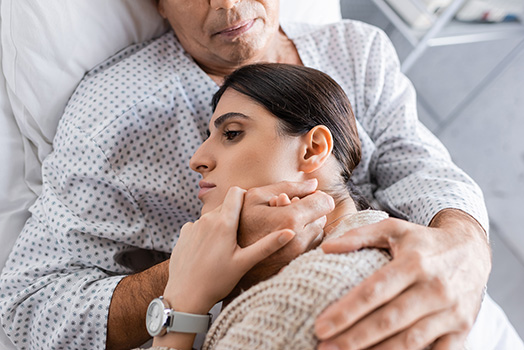By Sidra Khalid
June is the month of cancer survivorship. Even after patients live through a difficult diagnosis and undergo treatment, their struggles often are not over. This observance gives us an opportunity to focus on survivors’ challenges and concerns.
Some things to consider include:
1. Manage and monitor side effects: Some cancer treatments change the body and its functioning. Regular follow-up is required after completing treatment, as short- and long-term side effects can occur. An example includes neuropathy related to chemotherapy. Neuropathy can affect daily activities, such as opening and closing things or writing. This condition should be monitored and treated with medications to help improve function and daily living.
2. Have a survivorship care plan with the treatment facility: This plan lists the cancer diagnosis, treatment, physicians and surveillance protocol. The surveillance includes timings of oncology physician visits, lab work and imaging. It lists the symptoms that must be monitored that are concerning for a recurrence. Follow-up is very important, as it can help detect cancer recurrence earlier, which can help with treatment and improve outcomes.
3. Follow up with primary care providers: Seeing your regular doctor is encouraged, as survivors need to stay up to date with other cancer screenings.
4. Consider genetic testing: This measure is recommended for certain cancer types, as well as if there is a familial pattern present. Discuss with your oncologist if it is recommended because if a genetic mutation is present, additional screenings should be implemented to help with early detection. Sometimes, preventative treatments are needed. For example, if a BRCA 1 or BRCA 2 mutation is present, increasing a woman’s risk of developing breast or ovarian cancer, then one of the preventative options includes surgery – bilateral mastectomies and/or total abdominal hysterectomy.
5. Prioritize mental health: A cancer diagnosis and treatment are life changing and can lead to emotional distress during or after treatment. Discuss with your provider if you are having concerns.
6. Enact lifestyle changes: Survivorship should incorporate healthy habits, which include:
- eating healthier and maintaining a healthy weight
- exercising
- smoking cessation
- drinking alcohol moderately
- sunscreen/skin protection
- better sleep habits
7. Pay it forward: If you have a rare cancer, see if there is a
clinical trial or a cancer center available that is interested in monitoring and collecting data to help future patients with the same cancer.
It is very important for survivors to follow up with your oncologists regularly and keep up with surveillance. It also is crucial to focus on treatment-related effects and address them to improve quality of life.
Dr. Sidra Khalid is a physician with Memorial Physician Clinics seeing patients in hematology and medical oncology. Reach her at (228) 575-1234.


